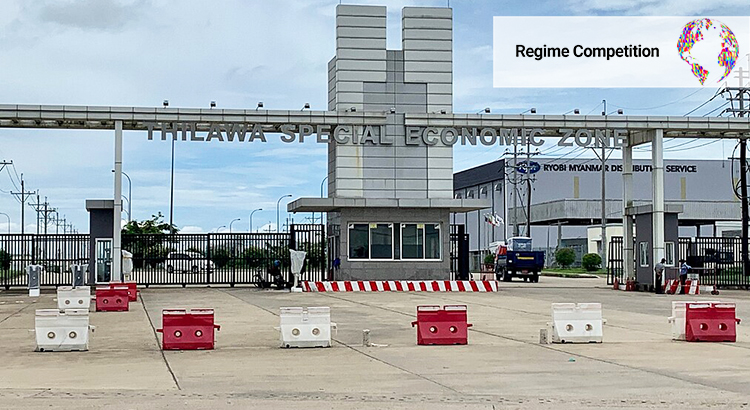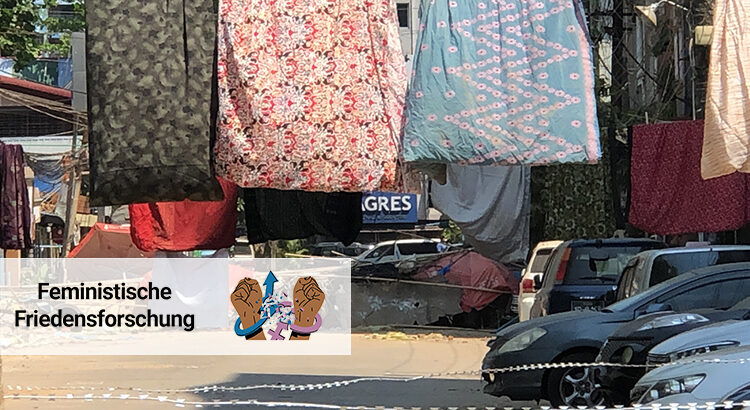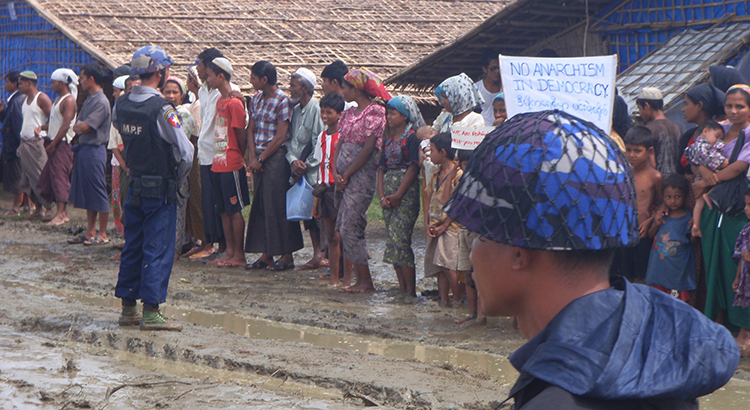The 2021 military coup in Myanmar has left the country significantly isolated on the world stage. Politically, foreign governments have avoided recognizing the junta rulers, although quasi-official engagement is still underway. Economically, foreign investments into Myanmar have dropped by 42% from 2021 to 2022, off levels that had already massively decreased since the 2017 Rohingya expulsion. However, despite the international outcry over the new regime’s open warfare against civilians and the escalating violence in Myanmar’s multi-front civil war, both China and Japan have remained engaged in development cooperation, pursuing ambitious projects for economic corridors and special economic zones (SEZs) that were contracted under the deposed civilian government; in the case of China, even some new projects have been launched.
Schlagwort: Myanmar
Here, There, and Everywhere: Feminist Resistance beyond the “Women, Peace and Security” Agenda in Post-Coup Myanmar
As a landmark in the movement to increase global attention to women’s critical role in participation, protection, prevention, relief and recovery in conflict settings, the UN Security Council’s resolutions on Women, Peace and Security (WPS) lend reference power to gender mainstreaming in all issues related to conflict resolution and peace governance – however, they fall short of effectively supporting women’s resistance in Myanmar.
China in Post-coup Myanmar – Closer to Recognition, Further from „Pauk-phaw“
At the close of 2021 China remains one of the few foreign partners for Myanmar. Amid ongoing public resistance to the junta and violent protest suppression, Beijing and the new regime in Naypyidaw are looking for a new mode of mutually beneficial coexistence. The junta tries to buy China’s support and recognition through new bilateral projects, while China aims to create a safety net for its long-term interests in the country.
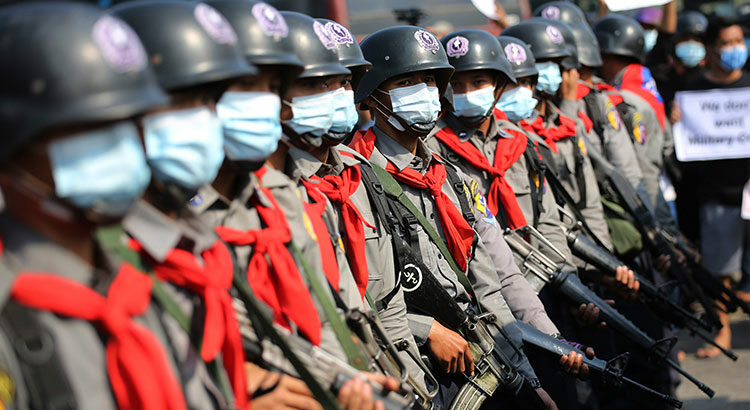
Myanmars „Veto-Coup“ 2021: ein Interpretationsversuch
Militärische „Veto-Coups“ kamen in der Vergangenheit in den Staaten öfters vor, in denen die Streitkräfte eine führende gesellschaftliche Rolle einnehmen. In Südostasien spielt das Militär diese herausgehobene Rolle in Myanmar und Thailand – beide Staaten haben Erfahrungen mit Staatsstreichen gemacht. Am 1. Februar 2021 putschte in Myanmar erneut das Militär. Da die Armee des Landes enge und lange zurückreichende Verbindungen zur Armee Thailands hat und beide Armeen eine Tendenz zu Putschen haben, stellt sich die Frage, inwiefern der Staatsstreich vom Februar 2021 aus der Geschichte der Putsch(versuche) auf dem südostasiatischen Festland erklärt werden kann. Folgt Myanmar dem thailändischen Vorbild?
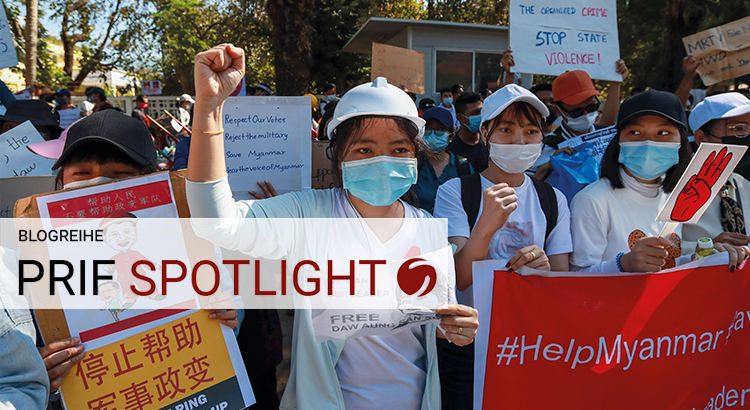
China in transitionary Myanmar. Challenging paths to democratization and peace
The recent military coup in Myanmar reversed a decade-long experiment towards incremental political liberalization. At the same time, it also brought China’s engagement there back into the spotlight, and initial Chinese reactions led to suspicions that Beijing had welcomed or even aided the return to military rule. However, the reality of China’s role in Myanmar’s democratic transition and simultaneous peace process is far more complicated, and instructive for its overall engagement in conflict societies.

Interpreting Myanmar’s 2021 „Veto“ Coup d’etat
Military “Veto” Coups have been prominent in countries where armed forces have played leading roles in society. In Southeast Asia, militaries have been prominent in Myanmar and Thailand, and the two countries have experienced their fair share of coups. The latest putsch occurred on February 1, 2021 in Myanmar. With Myanmar’s military having had a long and close relationship with Thailand’s armed forces, and both countries’ militaries prone to staging coups, one wonders to what extent Myanmar’s 2021 putsch can be explained in the context of the history of coups in mainland Southeast Asia. Does Myanmar follow the Thai model?
Hate speech in the context of mass atrocity crimes: How social media platforms help and hinder international criminal investigations
The May 2020 arrest of Félicien Kabuga brought an end to a manhunt spanning 26 years and two continents. The capture of the elusive alleged financier of the infamous RTLM hate speech radio station shows the importance of documenting hate speech for court proceedings if and when fugitives are eventually arrested. Today, extremist hate and atrocity speech in the context of genocide and war crimes takes place and is spread online. However, social media platforms have been slow to respond to and document it, and to cooperate with international authorities in doing so.
